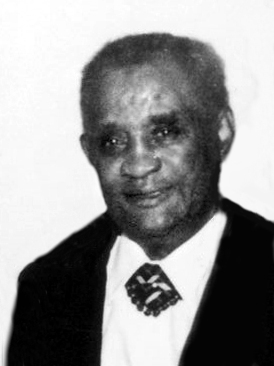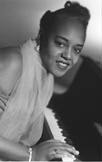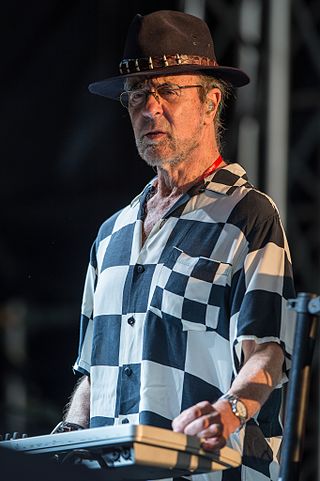Related Research Articles

William James Dixon was an American blues musician, vocalist, songwriter, arranger and record producer. He was proficient in playing both the upright bass and the guitar, and sang with a distinctive voice, but he is perhaps best known as one of the most prolific songwriters of his time. Next to Muddy Waters, Dixon is recognized as the most influential person in shaping the post–World War II sound of the Chicago blues.

Mathis James Reed was an American blues musician and songwriter. His particular style of electric blues was popular with blues as well as non-blues audiences. Reed's songs such as "Honest I Do" (1957), "Baby What You Want Me to Do" (1960), "Big Boss Man" (1961), and "Bright Lights, Big City" (1961) appeared on both Billboard magazine's rhythm and blues and Hot 100 singles charts.
Electric blues is blues music distinguished by the use of electric amplification for musical instruments. The guitar was the first instrument to be popularly amplified and used by early pioneers T-Bone Walker in the late 1930s and John Lee Hooker and Muddy Waters in the 1940s. Their styles developed into West Coast blues, Detroit blues, and post-World War II Chicago blues, which differed from earlier, predominantly acoustic-style blues. By the early 1950s, Little Walter was a featured soloist on blues harmonica using a small hand-held microphone fed into a guitar amplifier. Although it took a little longer, the electric bass guitar gradually replaced the stand-up bass by the early 1960s. Electric organs and especially keyboards later became widely used in electric blues.

Eurreal Wilford "Little Brother" Montgomery was an American jazz, boogie-woogie and blues pianist and singer.

Frederick Dewayne Hubbard was an American jazz trumpeter. He played bebop, hard bop, and post-bop styles from the early 1960s onwards. His unmistakable and influential tone contributed to new perspectives for modern jazz and bebop.

Robert Lockwood Jr. was an American Delta blues guitarist, who recorded for Chess Records and other Chicago labels in the 1950s and 1960s. He was the only guitarist to have learned to play directly from Robert Johnson. Robert Lockwood was one of the first professional black entertainers to appear on radio in the South, on the King Biscuit Time radio show. Lockwood is known for his longtime collaboration with Sonny Boy Williamson II and for his work in the mid-1950s with Little Walter.

Giuseppe "Joe" Venuti was an American jazz musician and pioneer jazz violinist.

Sippie Wallace was an American blues singer, pianist and songwriter. Her early career in tent shows gained her the billing "The Texas Nightingale". Between 1923 and 1927, she recorded over 40 songs for Okeh Records, many written by her or her brothers, George and Hersal Thomas. Her accompanists included Louis Armstrong, Johnny Dodds, Sidney Bechet, King Oliver, and Clarence Williams. Among the top female blues vocalists of her era, Wallace ranked with Ma Rainey, Ida Cox, Alberta Hunter, and Bessie Smith.

William Lawrence Mitchell was an American trumpeter, bandleader, soul, R&B, rock and roll, pop and funk record producer and arranger who ran Royal Studios in Memphis, Tennessee. He was best known for his Hi Records label of the 1970s, which released albums by a large stable of popular Memphis soul artists, including Mitchell himself, Al Green, O. V. Wright, Syl Johnson, Ann Peebles and Quiet Elegance.
Wilbur "Kansas Joe" McCoy was an American Delta blues singer, musician and songwriter.
Victoria Regina Spivey, sometimes known as Queen Victoria, was an American blues singer, songwriter, and record company founder. During a recording career that spanned 40 years, from 1926 to the mid-1960s, she worked with Louis Armstrong, King Oliver, Clarence Williams, Luis Russell, Lonnie Johnson, and Bob Dylan. She also performed in vaudeville and clubs, sometimes with her sister Addie "Sweet Peas" Spivey, also known as the Za Zu Girl. Among her compositions are "Black Snake Blues" (1926), "Dope Head Blues" (1927), and "Organ Grinder Blues" (1928). In 1961, she co-founded Spivey Records with one of her husbands, Len Kunstadt.

Ann Cole was an American R&B and gospel singer who has been described as "a genuinely great soul singer who had the misfortune to be too far ahead of her time". She had several minor hits in the late 1950s and early 1960s, but is now most noted as the original performer of "Got My Mojo Working", later popularised by Muddy Waters.
Theodore Roosevelt Darby, better known as Blind Teddy Darby, was an American blues singer and guitarist.
The Rooftop Singers were an American country folk-singing trio in the early 1960s, best known for the hit "Walk Right In". The group was composed of Erik Darling and Bill Svanoe with former jazz singer Lynne Taylor (vocals).

Manfred Sepse Lubowitz, known professionally as Manfred Mann, is a South African-born musician, resident in the UK since 1961. He is best known as a founding member of the bands Manfred Mann, Manfred Mann Chapter Three and Manfred Mann's Earth Band.

Duffy Power was an English blues and rock and roll singer, who achieved some success in the 1960s and continued to perform and record intermittently later.

Theodore Dudley "Red" Saunders was an American jazz drummer and bandleader. He also played vibraphone and timpani.
Irene Scruggs was an American Piedmont blues and country blues singer, who was also billed as Chocolate Brown and Dixie Nolan. She recorded songs such as "My Back to the Wall" and "Good Grindin'" and worked with Clarence Williams, Joe "King" Oliver, Lonnie Johnson, Little Brother Montgomery, Blind Blake, Albert Nicholas, and Kid Ory. Scruggs achieved some success but today is largely forgotten.
William Ezell, was an American blues, jazz, ragtime and boogie-woogie pianist and occasional singer, who was also billed as Will Ezell. He regularly contributed to recordings made by Paramount Records in the late 1920s and early 1930s. Ezell was noted by the music journalist Bruce Eder as "a technically brilliant pianist, showing the strong influence of jazz as well as blues in his work".
Joe Bennie Pugh, known as Forrest City Joe or Forest City Joe, was an American blues musician who is mainly remembered for his ability as a harmonica player. He performed with other major blues acts of the period; he was the harmonica player in Muddy Waters's first band and regularly performed in the Chicago area. Despite his meager recording career, Joe was considered one of the top harmonica players of the era.
References
- 1 2 3 4 Eagle, Bob L.; LeBlanc, Eric S. (2013). Blues: A Regional Experience. ABC-CLIO. p. 241. ISBN 9780313344244.
- ↑ Eder, Bruce. "Monkey Joe: Biography" . Retrieved November 13, 2022.
- 1 2 "Biography by Bruce Eder". Allmusic.com. Retrieved September 21, 2011.
- 1 2 Colin Larkin, ed. (1995). The Guinness Who's Who of Blues (Second ed.). Guinness Publishing. p. 90. ISBN 0-85112-673-1.
- ↑ "AllMusic ((( Monkey Joe > Discography > Compilations )))".